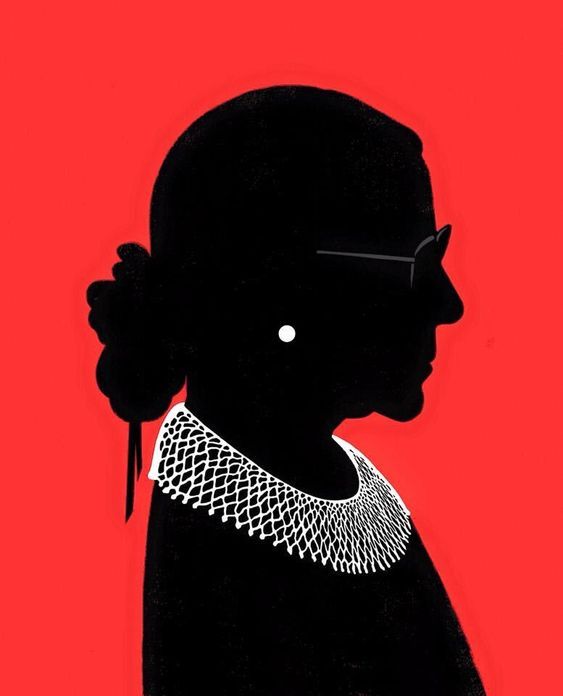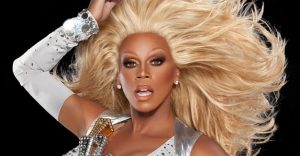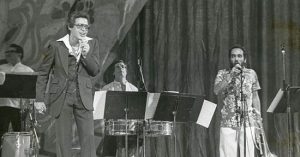Winner of the Spring 2019 StMU History Media Award for
Best Article in the Category of “Political History”
Being admitted into law school is difficult. Being admitted into Harvard Law is significantly harder. However, being admitted into Harvard Law as a female in the 1950s was near impossible. In the 1950s, a female’s hard work did not guarantee admission into any program. For the majority of Ruth Bader Ginsburg’s life, preferential treatment was always given to males, not only culturally and socially, but also in the eyes of the law. Nevertheless, she stood her ground in the face of adversity. The Notorious RBG has built her career on championing change in the law by fighting for equality for both sexes.

Ruth Bader Ginsburg, even in her early years, was no stranger to hardship. She grew up in a low-income Jewish family in Brooklyn, New York.1 It was during these years that Ginsburg’s mother taught her the most important of life’s lessons: independence. For Ginsburg, true independence is legal equality. She would be inspired by her mother’s life lesson, eventually, to fight for legal equality for all. Even with her mother’s passing while Bader Ginsburg was still in high school, her mother’s strong influence has followed her throughout her career.2
After the death of her mother the night before her high school graduation, Ruth enrolled for fall classes at Cornell University—where she eventually met her husband, Martin Ginsburg.3 After graduating from Cornell, Ruth and Martin moved to Kansas. While working for the Social Security Administration, she became pregnant. Despite her efforts to conceal her pregnancy, her superiors found out and demoted her—this would not be the only time Ginsburg would experience discrimination based on her gender.4 After her husband finished his time in the army, they both set their sights on law school. At the time of her admittance to Harvard Law in 1957, there was a grand total of eight women accepted into the program out of more than 500 students. During her first year of law school, Ginsburg and her women peers had dinner with the dean of the law school, Erwin Griswold. It was at this dinner that Griswold boldly asked the women in her class, “how they could justify taking the place of a qualified man?”5 That same year, her husband was diagnosed with testicular cancer. To support him, she completed her class responsibilities while helping him with his. While most of RBG’s law studies were completed at Harvard, she had to finish at Columbia. She fought to have her degree from Harvard, as there was a precedent for students’ to have their diploma from the school they had completed the majority of their studies. Nevertheless, Dean Griswold denied her request to have her LLB come from Harvard Law.6 When Bader Ginsburg graduated from Columbia Law in 1959, she was ranked number one in her class.7 Despite this fact, she was not hired by a single law firm in New York City and ended up as a professor at Rutgers’s Law School. As a law professor, she was able to take on any case she wished. She taught for years before taking on her first case, a tax law case in which a man was the victim of gender discrimination by the hand of the federal government.
RBG argued on behalf of Charles E. Moritz, alongside her husband, with the aid of the American Civil Liberties Union, Moritz v. Commission of Internal Revenue. It was during this lesser-known case, her first litigating case, that she first showcased her passion. In her early years, RBG’s mother had instilled in her a flexible perspective of the world, because people could take on many roles. To her, it made sense that bachelor Moritz should be afforded a tax break so he could be given the opportunity to take care of his mother. RBG believed this despite what society’s gender roles dictate that Moritz should do. During this first case, Bader Ginsburg was able to challenge institutionalized sexism, which at the time was legal. It is noteworthy that in her first case, her opposing counsel was one of her law professors from Harvard, Bozarth, and more importantly Dean Griswold of Harvard Law. Despite her skill and her impressive ability to write a perfect brief, she was still being underestimated by not only her legal foes and the court, but also by her own peers. For Bader Ginsburg, there was so much more than Mortiz’ $328.80 at stake.8 The future of legal gender discrimination was at stake. Up until this point, there were hundreds of laws differentiating citizens based on their gender, which was wrong and unethical to Bader Ginsburg. This is where her voice and ability to advocate for equality was able to ring loudly for the first time in the court of law–the unanimous decision by the 10th Circuit Appellate Court by Judge William Judson Holloway Jr. decided that differentiating a tax break on the basis of sex was in fact unconstitutional.9
In her role as lead counsel for the ACLU Women’s Rights Project, Ginsburg developed an effective strategy to achieve lasting results. Her strategy was to pick cases that were winnable and would set precedents to chip away at the legal barriers imposed on the basis of gender.10 In Kahn v. Shevin, for example, she represented a widower who believed he should be entitled to a Florida tax exemption that was usually only granted to widows. Later on, in Weinberger v. Wiesenfeld, Bader Ginsburg argued on behalf of a widower whose schoolteacher wife had been the family’s primary breadwinner. In all of these cases, while Bader Ginsburg, one of the most qualified attorneys of our time, was without a doubt underestimated at every single step.

Bader Ginsburg posing with her family members in the US Supreme Court | Courtesy of CNN
It was not until 1993, during the Clinton Administration, that she was nominated to the United States Supreme Court. She was appointed as the second woman ever and the first Jewish woman to serve on the United States Supreme Court.11 Her nomination and appointment to the United States Supreme Court finally gave Bader Ginsburg the platform that she needed to be able to interpret and read the letter of the law in a manner that would be fair. She could contribute to providing equality and protection under the law for all, which is what she had been fighting for her entire career as an attorney.
The Virginia Military Institute had a long-standing proud tradition and policy of only allowing the admission of men into the institution. The United States brought a case against the institution, stating that their tradition of gender discrimination violated the equal protection clause of the Fourteenth Amendment. This would be the first case that Bader Ginsburg would hear on the Supreme Court. United States v. Virginia, 518 U.S. 515 (1996), was a momentous case in which the Supreme Court of the United States struck down the long-standing male-only admission policy of the Virginia Military Institute (VMI) in a seven to one decision.12 Bader Ginsburg wrote, “a prime part of the history of our Constitution is the story of the extension of constitutional rights and protections to people once ignored or excluded.” Here, “there is no reason to believe that the admission of women capable of all the activities required of VMI cadets would destroy the Institute rather than enhance its capacity to serve the ‘more perfect Union.’”13 This case was the culmination of all of Bader Ginsburg’s trials and tribulations, which pushed her to work harder not for herself but to create a better world for the generations to follow her.

Being a woman in this world has never been easy, but women like Ruth Bader Ginsburg have become a beacon of hope for women everywhere because of her strong advocacy for equality no matter the gender, race, or religion. Ruth Bader Ginsburg, the second woman ever to be appointed to the United States Supreme Court, changed the momentum of the legal field for women. She has become an icon and inspiration to all women whether they are in the legal realm or not. Currently the oldest Supreme Court Justice, Ruth Bader Ginsburg has earned a reputation as a powerful voice for civil rights and gender equality. It is impossible not to be inspired by The Notorious RBG’s iconic determination and drive, which led to her historic appointment.
- Jane Sherron De Hart, Ruth Bader Ginsburg : A Life (New York : Alfred A. Knopf, 2018), 24-25. ↵
- Jane Sherron De Hart, Ruth Bader Ginsburg : A Life (New York : Alfred A. Knopf, 2018), 29-55. ↵
- Jane Sherron De Hart, Ruth Bader Ginsburg : A Life (New York : Alfred A. Knopf, 2018), 69-74. ↵
- Jane Sherron De Hart, Ruth Bader Ginsburg : A Life (New York : Alfred A. Knopf, 2018), 109-114. ↵
- Jane Sherron De Hart, Ruth Bader Ginsburg : A Life (New York : Alfred A. Knopf, 2018), 124. ↵
- Jane Sherron De Hart, Ruth Bader Ginsburg : A Life (New York : Alfred A. Knopf, 2018), 133. ↵
- Jane Sherron De Hart, Ruth Bader Ginsburg : A Life (New York : Alfred A. Knopf, 2018), 146. ↵
- “Moritz V. Commissioner Of Internal Revenue, 55 T.C. 113.” (1970), Casetext. https://casetext.com/case/moritz-v-commissioner-of-internal-revenue. ↵
- “Moritz V. Commissioner Of Internal Revenue, 55 T.C. 113,” (1970), Casetext. https://casetext.com/case/moritz-v-commissioner-of-internal-revenue. ↵
- Jane Sherron De Hart, Ruth Bader Ginsburg : A Life (New York : Alfred A. Knopf, 2018), 154-175. ↵
- Jane Sherron De Hart, Ruth Bader Ginsburg : A Life (New York : Alfred A. Knopf, 2018), 190-203. ↵
- “United States V. Virginia Case Summary,” 2017. University of Hawaii School Of Law Library. Https://library.law.hawaii.edu/2017/01/23/united-states-v-virginia-case-summary/. ↵
- “United States V. Virginia Case Summary,” 2017. University of Hawaii School Of Law Library. Https://library.law.hawaii.edu/2017/01/23/united-states-v-virginia-case-summary/. ↵



101 comments
Lyle Ballesteros
An inspiring story for so many and I hope her contribution to gender equality in America does not continue to be undone by the current Supreme Courth and many othe rpoliticians who seem to be trying to take a way women’s rights to their bodies. What she did and the role model she was too many ladies and young girls will live on for decades and even centuries and her legacy will live on with many more women getting opptorutinites in government though still not enough and as much power as men have.
Jacob Anthony Ayala
Alicia this was a very informative and fun paper to read. I love the title “The Notorious RBG”. Political phenomes such as RBG are huge to this country. The way Ginsberg challenged the norms at the time and really showed up and showed out is truly inspiring. Without strong women like her, this country would not see the change it has seen.
D'vaughn Duran
Great article about Ruth Bader Ginsburg. I only know a little about her and the road paved for women but your article was great with more information. She was so inspiring with her advocacy for many things like equality. Also, her being the second woman to be appointed to Supreme Court and the oldest as well. She had a very powerful voice!
Phylisha Liscano
Hello Alicia, a very great article and well written. I had no prior knowledge about Ruth but your article did wonders. She is a very inspiring woman and the fact that she never gave up on what she was fighting for speaks very loud. I enjoyed getting to read your article and you did a fantastic job telling Ruth’s story. Overall great article and congratulations on the award.
Christopher Metta Bexar
I have tremendous respect for ” The Notorious RBG”. She was perhaps the greatest Justice on the Supreme Court in the last 30 years. I first read about her when researching my article two years ago on the Windsor Tax Case. The case in which the Republican Party underestimated the female members of the Court, it cost them badly. Justice Ginzburg and Justice Soto-Mayor tore apart a former Solicitor General defending the IRS and in the process had DOMA declared unconstitutional. Again on the basis of the equal protection clause of the 14th Amendment.
Eva Lizarraga
I didn’t know much about RBG before reading this article, besides the fact that she had passed away in September 2020 and was an advocate for gender equality. After reading, however, I feel as though I’ve learned much more about her early life, the struggles she faced, as well as the accomplishments that led her to her seat on the U.S. Supreme Court. I also learned that by challenging not only institutionalized sexism, but also internal sexism just as RBG did with her women peers, we improve ourselves, our neighbors, and our country.
Kimberly Rubio
When I think of Ruth Bader Ginsberg, I think of a champion for women’s rights. It was interesting learning about some of her lesser-known cases in which she defended the rights of male clients. This strategy ultimately benefited women in the fight for gender equality. I knew RBG was a graduate of Columbia Law School but I did not know she had also attended classes at Harvard Law School.
Lindsey Ogle
It is crazy to think that she is really gone, and never would I of thought it would be so soon. I knew about RBG and some of the things she did but I never knew in depth everything she had done. I knew that many girls looked up to her because of the amazing things she accomplished. She was a great advocate for many around the world and fought for what she believed in and never gave up.
Abilene Solano
It’s sad to find out that Ruth Bader Ginsburg had recently passed away but her presence in the court had definitely made an impact in our American history concerning civil rights and gender equality. I knew that she was an influential supreme court justice but I didn’t know anything about the hardships she faced while growing up. It is truly inspiring how someone was able to get over their adversities and take a position that would impact the way society holds itself in the years to come. It’s a great article that honors the memory of a great woman! (I also really liked the title and featured picture the author picked out, it’s really eye catching!)
Cayden Garcia
It is crazy to think about, how such an important woman of our time has only recently left us. I have heard about RBG plenty of times from my mother, who looked up to her at a young age. RBG was able to inspire girls like my mom to never take no for an answer and fight for what they believe in. May she Rest In Peace.
Your article did a great job detailing RBG’s early life and struggles. Thank you for some new information!